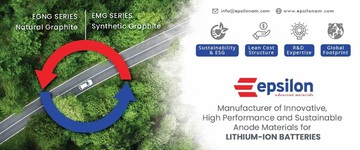Green electric transition: it’s a deal!
The world is in a state of flux, of change not seen in the last 100 years. And with change comes a great opportunity to do away with what is harmful, and to start over. I am talking about the great and imminent global energy transition that we are all witnessing; eventually, directly or indirectly, we will all be a part of this movement. This electric revolution will mark this decade in history.
Europe has taken the lead in this change, starting with the European Green Deal with the highest standards of compliance. And though behind Asia in battery manufacturing, it is practically leapfrogging the evolutionary process and green energy storage through advanced R&D. It plans to operate at a level that will eliminate all existing 'dirty' batteries and only permit entry of batteries at the cleanest levels into the EU. The continent has recognized the dual importance of job creation in the shift from fossil to electric they are setting up a complete domestic battery value chain, which caters to Europe's huge need for transport, power, and industry.
The dependency on Asia for battery power, much like that on the Middle East for oil, is fast reducing. Depending on a home-grown supply chain is much more reliable; the price and quality factors can be well under control. Asia is waking up to the need for a uniform battery standard, to be accepted globally and regain its leadership position. Asian manufacturers are now nimbly collaborating with Europe's more advanced battery technologies, even eying the European EV market.
It is a recognized fact now that research plays a key role in staying ahead in the market. Electric mobility and its supporting ecosystem including green energy generation, energy storage, and charging infrastructure, all rely on technology. And technology, as we know, changes often, bettering the options.
Europe's strategy pivots completely on advanced R&D to swiftly discover the lowest carbon footprint for the entire battery supply chain starting at the mining level. Research organizations will study the carbon footprint at each level of the supply chain that builds batteries for EU usage to ensure zero-emission in compliance with Europe's goal of becoming the first climate-neutral continent by 2050.
What strategy will India employ to fit into this scenario? We have a goal to not just manufacture for India, but to become a battery manufacturing hub, a supplier of batteries globally. And rightly so - this is an opportunity we should not let slip. It is now clear that research holds the key and the most effective means is to have research and academia join hands and work together at the swiftest possible pace.
The great and imminent global energy transition that we are all witnessing; will all be a part of this movement. This electric revolution will mark this decade in history.
A second key aspect is a collaboration. The dimension of the battery manufacturing project from mining through to the finished product is a massive undertaking and very difficult for a single organization to tackle single-handedly. We should also focus on leveraging our strengths, like the electronics part of the battery system; strengthening and fortifying our expertise in that particular area, would seem like a viable strategy to start with.
Above all, we need to invest in our research efforts, to keep ahead in technology. Not in step with the world, but always one step ahead. Asians are known for their intellectual capabilities, so why not put them in play. The field is open and still level, one that has the winning technology stays on top of things.
The benchmarks have been set by the European Green Deal standards; levels have been put in place. That is a fair amount of research and time saved for the rest of us. We should focus on achieving these standards – on achieving a quality that brings with it reliability.
We should also bring back to mind the importance of shared mobility for a county as populous as India. We should use this transition to decongest our roads by implementing a standard of public transport that is reliable, clean, and effective. India has a great opportunity lined up; let's not miss the bus!

























